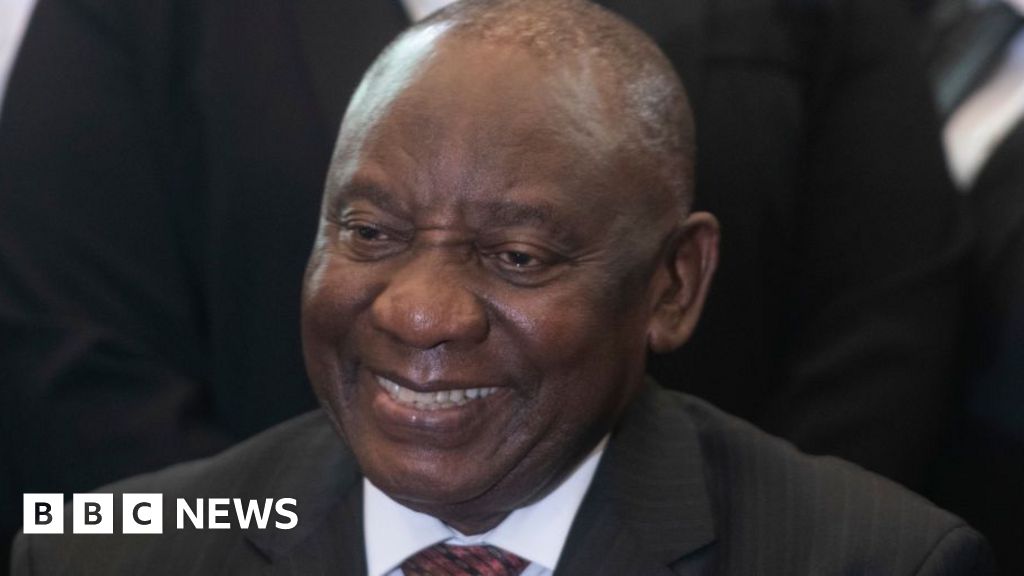Image source, Getty Images
- author, Basil Lukanga
- role, BBC News
South African President Cyril Ramaphosa is due to be sworn in for his second term as president.
Last week, lawmakers re-elected him to remain president after his African National Congress (ANC) agreed to form a coalition government with long-time rival Democratic Alliance (DA) and other parties.
The ANC, which has been in power since the end of apartheid in 1994, lost its majority for the first time after general elections on May 29 failed to produce a clear winner.
Many heads of state and dignitaries from around the world are expected to attend the inauguration ceremony, which will be held in the capital, Pretoria.
The presidential office listed Angola, Uganda, Mozambique, China, Egypt, the State of Palestine and Cuba as countries that will have “high-level representatives” attending the inauguration.
The ceremony, which will be held on a normal working day at the presidential palace, is expected to include musical and artistic performances, a 21-gun salute, a military flyover and a procession by the national defence forces.
The Umkhonto weSizwe (MK) party, founded six months ago by former president Jacob Zuma, said its members would not take part in the “farcical” inauguration.
The party, which won 15% of the vote and 58 seats, also boycotted the first session of parliament last Friday.
Ramaphosa is expected to appoint a cabinet soon after taking office, which will include his new coalition partners, the Democratic Alliance (DA) and three other smaller parties, which together hold 68 percent of the seats in parliament.
The president is also expected to introduce policies to salvage the struggling economy.
Ramaphosa first became president in 2018 after his predecessor, Zuma, was forced to resign amid corruption allegations which he denies.
More BBC articles about South Africa:
Image source, Getty Images/BBC

